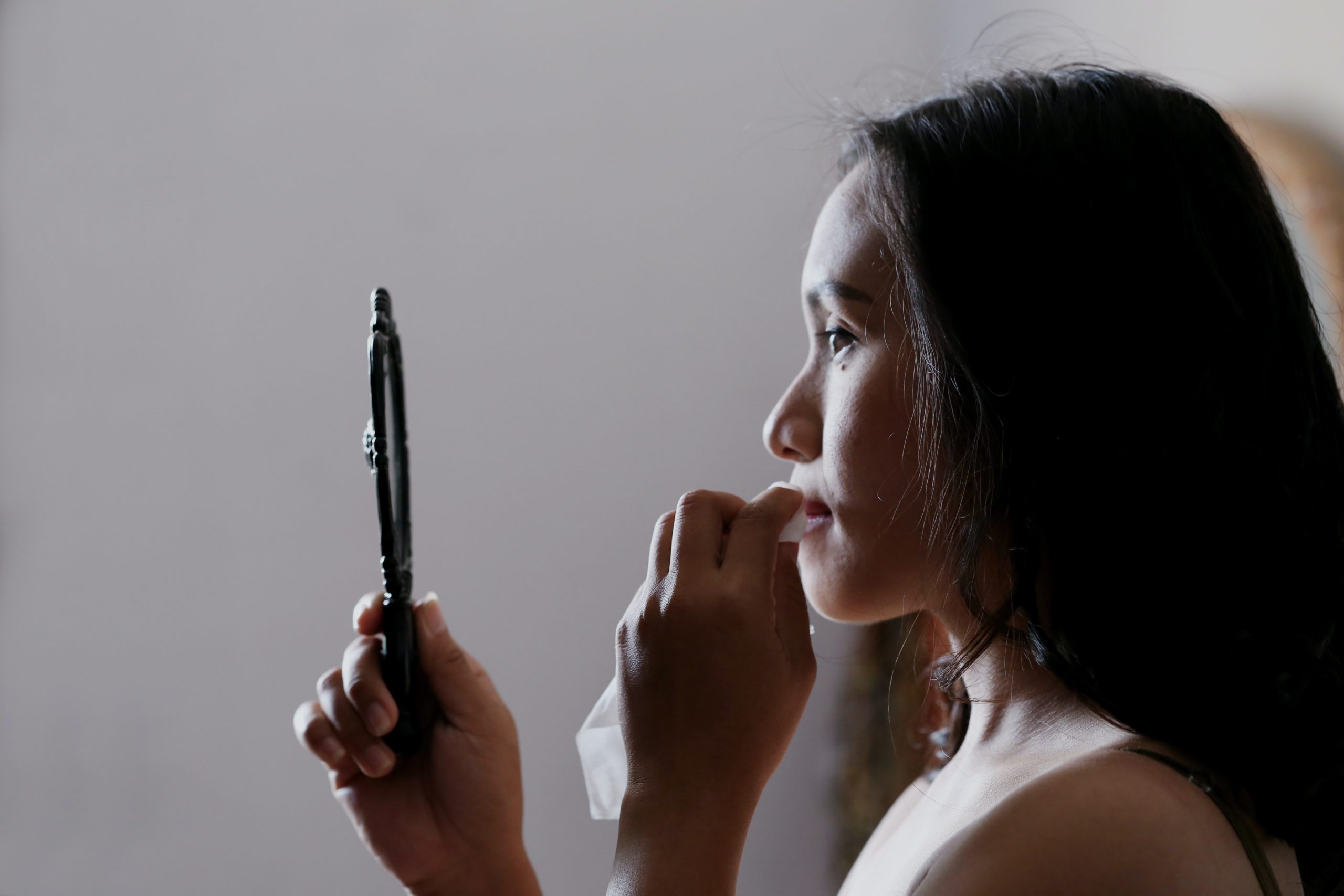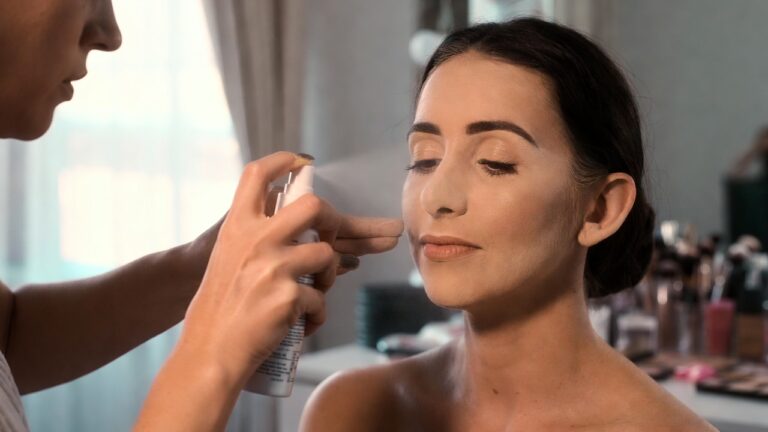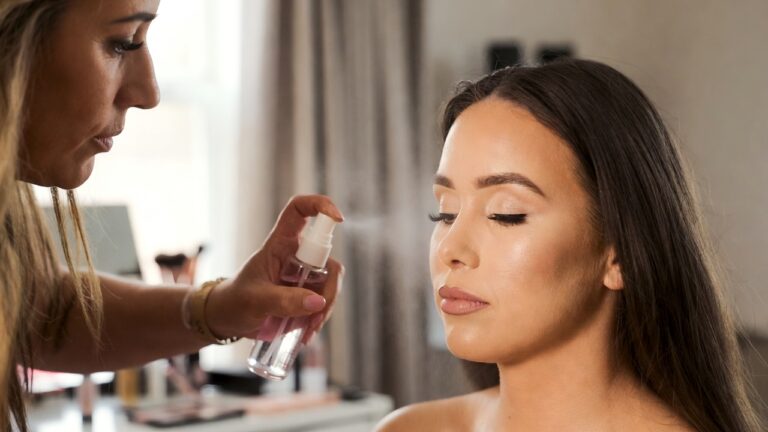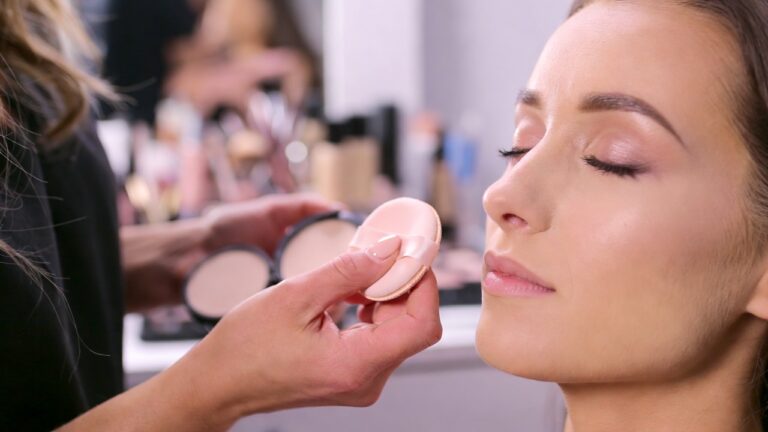Makeup has become an integral part of our daily lives, allowing us to enhance our features and express our personal style. From foundation to mascara, we rely on these products to boost our confidence and transform our appearance.
However, amidst the allure of flawless beauty, we often overlook a crucial step in our beauty routine—removing our makeup. Unbeknownst to many, this simple act holds the key to maintaining healthy, glowing skin.
In this article, we will explore the importance of removing your makeup and delve into the reasons why it should never be neglected.
Maintaining Healthy Skin
- Preventing clogged pores and acne: Makeup residues, especially oil-based products, can clog the pores, leading to blackheads, whiteheads, and acne breakouts.
- Allowing the skin to breathe: Our skin requires oxygen to regenerate and maintain its optimal health. Leaving makeup on overnight suffocates the skin and hinders its ability to breathe.
- Avoiding skin irritation and inflammation: Some cosmetic ingredients, when left on the skin for prolonged periods, can cause irritation, redness, and even allergic reactions. Removing makeup helps prevent such skin issues.
Promoting Skin Rejuvenation and Repair
- Allowing natural skin renewal process: Removing makeup at night aids the skin’s natural exfoliation process, enabling new skin cells to surface and rejuvenate the complexion.
- Enhancing collagen production: Makeup residues can disrupt the production of collagen, a vital protein responsible for maintaining skin elasticity and firmness. Thoroughly cleansing the skin allows for optimal collagen synthesis.
- Preventing premature aging and wrinkles: Makeup that remains on the skin can contribute to the breakdown of collagen and the formation of fine lines and wrinkles over time. Proper makeup removal helps preserve the skin’s youthful appearance.
Removing Environmental Pollutants
- Eliminating dirt, dust, and pollution particles: Throughout the day, makeup acts as a magnet for environmental pollutants, including dirt, dust, and harmful particles. Removing makeup clears away these impurities, preventing them from settling into the skin and causing damage.
- Reducing oxidative stress on the skin: Environmental pollutants generate free radicals that attack the skin cells, leading to oxidative stress, premature aging, and dull complexion. Thorough makeup removal minimizes the impact of these damaging agents.
- Maintaining the skin’s natural protective barrier: Makeup residues can disrupt the skin’s delicate balance and compromise its protective barrier. By removing makeup, we allow the skin to restore its natural defense mechanisms, safeguarding it against external aggressors.
Risks of Not Removing Makeup
Skin Problems and Conditions
- Acne breakouts: Accumulated makeup can clog the pores, creating a breeding ground for acne-causing bacteria. This can result in persistent breakouts and blemishes.
- Dryness and dehydration: Makeup residues can deplete the skin’s natural moisture, leaving it dry, tight, and prone to flakiness.
- Inflammation and redness: Certain makeup ingredients, when left on the skin, can trigger inflammation and redness, leading to sensitive and irritated skin.
Premature Aging
- Loss of elasticity: Failing to remove makeup can contribute to the breakdown of collagen and elastin, causing the skin to lose its elasticity and firmness prematurely.
- Fine lines and wrinkles: Makeup residues left on the skin can accentuate the appearance of fine lines and wrinkles, making them more pronounced over time.
- Uneven skin tone: Lingering makeup can result in an uneven distribution of pigmentation, leading to a dull and lackluster complexion.
Eye and Lip Health
- Eye infections and irritation: Mascara, eyeliner, and eye shadows can harbor bacteria and irritate the sensitive skin around the eyes, potentially causing infections, redness, and discomfort.
- Chapped and damaged lips: Failing to remove lip products can lead to dry, chapped lips and even discoloration or pigmentation issues over time.
- Mascara and eyelash problems: Leaving mascara on overnight can cause lashes to become brittle, prone to breakage, and even lead to lash loss. Proper removal helps maintain the health and longevity of lashes.
Proper Techniques for Removing Makeup
Choosing the right makeup remover
Different types of removers: Consider using oil-based removers for heavy and waterproof makeup, water-based removers for light makeup, or micellar water for gentle yet effective cleansing.
Consideration for different skin types: Select a makeup remover that suits your specific skin type, whether it’s oily, dry, sensitive, or combination skin.
Step-by-step makeup removal process
- Removing eye makeup gently: Start by using a gentle eye makeup remover or micellar water on a cotton pad to dissolve and remove eye shadows, mascara, and eyeliner.
- Cleansing the face thoroughly: Use a suitable cleanser to remove foundation, concealer, blush, and other face makeup. Massage the cleanser into the skin in circular motions, paying attention to the T-zone and areas prone to congestion.
- Double cleansing for heavy makeup: If you wear heavy makeup or have persistent residue, follow the initial cleanse with a second round using a cleanser or cleansing oil to ensure complete removal.
Post-makeup removal skincare routine
- Toning and balancing the skin: After makeup removal, apply a gentle toner to restore the skin’s pH balance and prepare it for subsequent skincare products.
- Moisturizing and hydrating the skin: Follow up with a nourishing moisturizer or hydrating serum to replenish moisture and restore the skin’s natural hydration levels.
- Applying targeted treatments: Incorporate targeted treatments such as serums, masks, or exfoliants to address specific skin concerns, promoting overall skin health and radiance.
Conclusion
Removing makeup is not just a mundane task; it is a vital step in our skincare routine that unhair the potential for healthy, vibrant skin. By taking a few minutes each day to thoroughly cleanse our face and remove makeup, we can maintain a clear complexion, support skin rejuvenation, and ward off premature aging.
FAQs
1. How long should I spend removing my makeup?
Ideally, spend at least five to ten minutes to ensure thorough removal of your makeup. Take your time to cleanse the skin gently and avoid excessive rubbing or tugging.
2. Can’t I just use facial wipes to remove my makeup?
Facial wipes can be a convenient option, but they may not effectively remove all makeup residues. It is recommended to follow up with a proper cleanser or micellar water for a more thorough cleanse.
3. Is it necessary to remove makeup even if I don’t wear it every day?
Yes, it is still essential to remove any makeup residue, even if you do not wear makeup every day. Environmental pollutants, dust, and dirt can accumulate on your skin, and proper cleansing will help maintain its health.
4. Can leaving makeup on overnight cause long-term damage to my skin?
Yes, leaving makeup on overnight can lead to clogged pores, increased bacteria growth, and long-term damage such as premature aging, breakouts, and skin sensitivity.
5. Should I remove my makeup before exercising or sweating?
Yes, it is advisable to remove your makeup before exercising or sweating. Sweat mixed with makeup can clog pores and increase the risk of breakouts and skin irritation. Opt for a clean, makeup-free face before engaging in physical activities.



